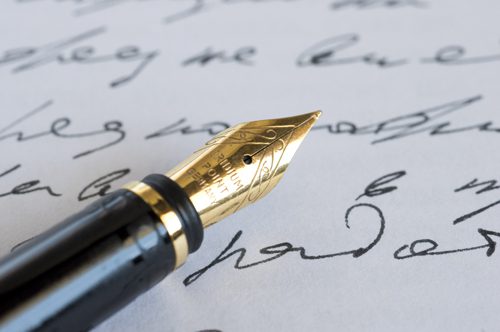Rewriting Stories: Using Creative Writing in Recovery, Part 2
 A previous post discussed the reasons why writing can be helpful to those in recovery.
A previous post discussed the reasons why writing can be helpful to those in recovery.
This post gives a few more specific exercises for writing memoir and poetry. They can be used by oneself or in a group meeting. Because writing is highly personal, writers can choose to share or not share their work in group settings.
Notice that a lot of these exercises can be structured to be about
Start with lists
Consider starting a writing session or group class with a list or two. Lists are a great warm-up to get the brain working or a useful way to push through writers’ block. With lists, there’s no need to write in full sentences or use correct grammar, so lists can be less intimidating for beginner writers or those in
Here are some examples of list topics:
- Your favorite foods
- Things that are green
- Things that remind you of home (focus on smells, sounds, objects, sounds, and tastes)
- Things you believe in
- Parts of your body that you like
Notice that many of these lists revolve around objects. Lists can be a great way in writing to encourage imagery, words and phrases that evoke the senses. Imagery is important in writing because it makes the words come to life and feel more real. Also, everyone can write about memories of things that they’ve seen, felt, smelled, tasted, or heard—even inexperienced writers.
Free Writing
The idea behind free writing, or stream of consciousness writing, is to write continuously without lifting the pen from the paper (or the fingers from the keyboard.) The goal with free writing is to not judge any of the thoughts that enter the brain—to let the creative juices flow.
It is okay if not all the words on the page are brilliant. The writer can always go back and revise. Free writing teaches writers to not be too hard on themselves and that nothing is perfect the first time around—an important life skill for those
Repeating a Phrase
A variation of free writing is to repeat a phrase in an essay or poem. If the writer gets stuck or can’t think what else to say, he/she can return to a phrase, which will catapult the ideas and words again. This will keep them free writing and generating ideas.
Also, repetition of a phrase gives a rhythm and power to an essay or poem. Every time the phrase is repeated, its meaning grows stronger. This means the repeated phrase must be a good one with potential for lots of depth.
Here are some ideas of phrases to repeat:
- “I love it when…”
- “I hate it when…”
- “What I’m trying to say is…”
- “I’m thankful for…”
- “No one ever told me…”
- “No one ever asked me…”
- “To me, love means…”
- “I will never again…”
Writing Letters
A holistic approach to recovery is taken at Victory Addiction Recovery Center, where the
This can be an emotional experience for those in recovery—to own up to mistakes that may have hurt family members. The process of writing down the truth can be healing, though. Especially if a loved one has passed away or is no longer in contact with the writer, a letter allows a person in recovery to say what he/she will never be able to say in person.
Another approach to the letter exercise is to imagine a loved one has written advice in a letter. For example, what advice did your mother give about drugs?
Reading literature can complement creative writing exercises
If a group is writing for an hour, it might be beneficial to take some of that hour to discuss a poem, and essay, or a story. It can be used as a warm-up activity or as a break between writing exercises.
There are many reasons reading and writing go hand-in-hand:
- It’s inspirational to read what others have written about life and addiction. It reminds writers what they, too, are capable of.
- It bonds the group together by creating discussion. It gives people a place to form and voice their own opinions about what is good artistic expression.
- It makes writers better. For example, a writer might think their poem on rivers is original until they read other poems about rivers. Reading helps sharpen writing skills.
A great resource for stories, essays, and poems relating to addiction and recovery is the Words Without Walls Anthology.
To learn more about creative writing in recovery, check out Words Without Walls at Chatham University, from which some of these prompts were taken.





 A
A 

